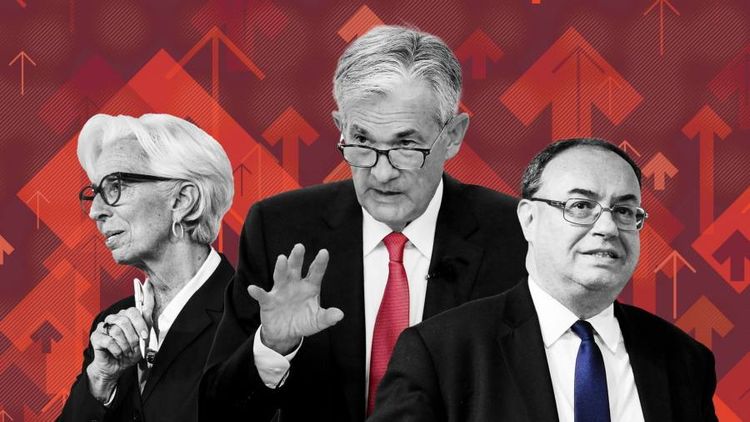Central banks’ goal of tackling inflation is hindered by financial turmoil.

Some previous financial decision makers are concerned that concentrating solely on reducing inflation could intensify anxiety.
Get complimentary updates from central banks.
We will dispatch an email to you every morning called myFT Daily Digest. This email will contain a summary of the latest news related to Central banks.
Ex-central bankers have differing opinions on whether the Federal Reserve and Bank of England should proceed with increasing interest rates or pause for a moment to evaluate how the current financial crisis will hinder the availability of loans and affect the market's demand.
Last week, the European Central Bank implemented an increase of 0.5% as planned. They emphasized that there was no compromise between combatting inflation and preserving financial stability.
Later on Wednesday, the Fed will come to a decision, and on Thursday at midday UK time, the BoE will make its move. Despite the recent collapse of US lenders Silicon Valley Bank and Signature, and Credit Suisse's rescue-takeover by Swiss rival UBS, analysts are anticipating quarter-point increases from both banks.
Consultant and former Federal Reserve economist Claudia Sahm expressed her belief that the recent bank failures indicate that the central bank has increased interest rates too rapidly. Sahm, along with a group of others, had previously expressed concern over the US central bank's aggressive increases, with some even speculating that these actions would result in damage. As it turns out, those concerns were not unfounded - the consequences of the Fed's three-quarter point rate hikes last year have now become apparent.
According to Lucrezia Reichlin, an ex-research director at the ECB and current professor at the London Business School, the recent banking crises must be regarded as a warning sign of the consequences of increased borrowing rates.
According to her statement, the tensions in the market are bound to cause a ripple effect in financial conditions, in addition to the current scenario. Therefore, she believes that the ECB and BoE should put a hold on increasing rates and the Fed should slow down its pace.
Some individuals suggested that policymakers should continue to increase interest rates.
Adam Posen, the head of the Peterson Institute for International Economics in Washington, remarked that the current ECB situation is dissimilar to that of 2008. He made this statement as a reference to the infamous 2008 decision by the ECB to hike interest rates just before the collapse of Lehman Brothers later that year.
Posen, who was a member of the Bank of England's interest rate-setting committee from 2009 to 2012, has expressed the view that the Federal Reserve and Bank of England must increase their interest rates. If they fail to do so, it could lead to an entrenched "cycle of inflation".
If the banks in the United States experience a collapse, it would certainly make them more cautious about lending. However, the impact would be minimal, and it is already part of the Federal Reserve's strategies to reduce economic overheating. The speaker stated that if this is the outcome, they will accept it.
Charles Goodhart, who previously served on the BoE Monetary Policy Committee and was among the first to raise the alarm about the recent inflation increase, stated that the decision for the BoE is apparent. He voiced that "In the United Kingdom, taking a break would be entirely incorrect," emphasizing that halting would create suspicions of issues in banks. Consequently, it would raise fears that the BoE is prioritizing financial stability over inflation.
If banks start limiting their lending due to the current chaos, rate-setters may choose to forgo raising interest rates.
Earlier this week, Christine Lagarde, who is the president of the ECB, mentioned that there has been a decrease in the willingness of eurozone banks to lend money. She also stated that this drop could be made worse by any market tensions that may arise. As a result, the ECB will need to consider this when making any future decisions.
Jason Furman, a former counsel to former US president Barack Obama, insisted that the Federal Reserve should change its stance in order to reflect an increase in financial restrictions.
According to Francesco Papadia, who used to lead market operations at the European Central Bank, if financial issues lead to a more widespread, systemic crisis, central banks may not be able to effectively separate the concerns of price stability and financial stability.
He said it was possible that liquidity operations might not be sufficient to calm markets, and if the situation worsens, a conflict between financial and price stability may arise.
Posen stated that issues within the United States have only affected a particular group of moderate-sized banks that took advantage of a gap in regulations. There is currently no indication of any widespread or systemic difficulties.
However, he stated, "I have a hope that my assumption is correct."













































